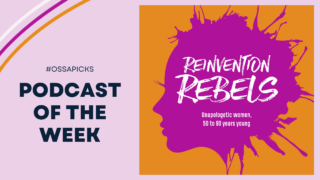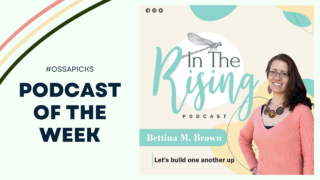It seems like everyone is starting their own podcasts these days — and for good reason! Podcasts are a wonderful way to share experiences, connect with others, and learn from different perspectives (not to mention they’re high value as a business tool).
But if you’re thinking about starting your own podcast, you may be a bit daunted by the whole process. Where do you get your equipment? How do you manage production and marketing? What would you even talk about?
If you’re unsure about any of the questions above, look to these lovely ladies for inspiration. These podcasting women answered some of the most commonly asked questions about podcasts, and shared a few key things they thought about before hitting record for the first time.
Ali Shapiro, MSOD, CHHC, Host of the Insatiable Podcast

Source: alishapiro.com
Q: What’s your show about?
Insatiable is a rare show that takes a non-dogmatic approach to nutrition and zooms out beyond our plate to look at what influences our food and health choices. We discuss how to guide yourself to your own nutrition and health answers rather than pushing any singular diet or path to holistic health.
We also get to the root cause of health symptoms —from PMS to inconsistency with our healthy habits. For example, when you understand that your inner critic is actually trying to protect you instead of sabotage you, your entire wellness worldview changes and you get results beyond the current health-care or wellness paradigms.
What did you consider before starting your podcast?
Podcasting is the farm-to-table of food, not the fast food genre of most media. It offers the space to trust that the listener is curious, smart, and wants to be informed.
I wanted to align with this opportunity that the podcasting medium provides so that people could learn that they have nuanced options beyond diet culture and an amorphous body love process. I call it Option C, where you create your own unique path from nutrition to life choices that work for your mind, body and soul.
I originally had a co-host and we decide a weekly episode was enough. We were just experimenting and not being very strategic in the beginning. When she had to depart, I started to consider my workload and how to avoid burnout. That’s when I switched to doing Seasons so I could still produce quality work and hopefully not lose too many listeners. Consistency is a key to growing a show.
What equipment or apps do you use to record your episodes and manage production?
I record on Zoom(with video off) and a Blue Spark microphone, and then I use We Edit to do the production.
What would you do differently if you started your podcast again?
If I had to start over, I would probably tighten my focus and questions around the central theme of why our show is so different from others on the market. Most health and behavior change experts focus on rules or tips to resist food and “being bad” with our habits, whereas I approach the topic with a more rich, effective conversation by asking, “how do I become the person not tempted by food or controlled by stress?”
Do you think your podcast is successful? Why or why not?
I define success as education first, impact second, and growth third. So on all three fronts, it’s been wildly successful. We share paradigm-shifting information that you aren’t getting in mainstream media or conventional wellness outlets. I hear from listeners all the time about how the show has helped them stop binging, or how they take insights from the show to their therapists and have huge breakthroughs. That kind of impact is the definition of success to me.
It has also grown my business in terms of my email list, platform reach, and revenue, but most importantly, I’m getting the right clients for my work. My work is totally unconventional and rebellious. People know what they are getting into by listening to the podcast!
How you have promoted your podcast?
To promote it, I do interviews on other people’s podcasts, making it easy for guests to share with their communities and promote on my social media channels. Going on other people’s podcasts has helped the most in terms of big growth spurts. Word of mouth is also serving the show very well.
Baily Hancock, Host of Stop, Collaborate & Listen

Source: bailyhancock.com
What’s your show about?
On Stop, Collaborate & Listen, I showcase people who are actively leveraging collaboration in their businesses and life so hat my listeners can understand what collaboration actually looks like IRL.
What did you consider before starting your podcast?
My train of thought went something like…”Does the world need yet another podcast? Is anyone else talking about collaboration with the types of guests I want to interview? Would I listen to this show? Could this goal be achieved through another medium? Would I want to do that?”
What equipment or apps do you use to record and manage production?
Zoom for recording and Messy.fm for hosting.
Do you think your podcast is successful? Why or why not?
Success, to me, is a podcast that people find valuable and want to share with their friends, and so far I’ve gotten great feedback informing me of both.
How you have promoted it?
I’ve promoted it through my Instagram, Facebook page/group, and LinkedIn.
Jennifer Baker, Host of Minorities in Publishing

Source: jennifernbaker.com
What did you consider before starting your podcast?
General layout and audience reach. Who was Minorities In Publishing for and who would best fulfill the overall goal of the discussions had? How often was it reasonable to post upon inception? I also thought about the technical side of dispensing a podcast through various applications for seamless uploads of material and downloads for customers.
What equipment or apps do you use to record and manage production?
Zoom H6, Blue Snowball, Adobe Audition, Skype, Google Hangouts.
Do you think your podcast is successful, and why or why not? How you have promoted it?
It’s successful because it’s become part of the larger conversations in publishing surrounding inclusion, and it also provides a platform for under-represented authors to discuss their work — not necessarily discuss their identity.
Tawny Lara and Lisa Smith, Co-Hosts of Recovery Rocks

Source: TawnyLara.com
What’s your show about?
Recovery Rocks features a rock and roll-loving Gen X lawyer in 12-step recovery process from addiction to alcohol and drugs, and an equally rock-obsessed Millennial writer who found addiction recovery through blogging. It’s a new kind of discussion about the issues impacting those who struggle and recover by reflecting on different perspectives, but finding much in common.
What did you consider before starting your podcast?
How can we keep the topic of sobriety fun and exciting for listeners? How can it be different from other recovery-themed podcasts? Enter the rock-n-roll element!
What equipment or apps do you use to record and manage production?
Our producer does all of this!
Do you think your podcast is successful, and why or why not?
We believe that success is relative. We are enjoying ourselves while helping others. So to us, that’s a success. Having a lot of downloads is a fun byproduct of doing the work that we love.
Lia James, Host of Human Inclusive

Source: LiaJames.com
What’s your show about?
Human Inclusive amplifies voices of diverse communities.
What did you consider before starting your podcast?
We started research and development in January 2018. We explored other podcasts focused on the same or similar topics, what would success look like for us, what type of topics we wanted to explore with the podcast, how frequent we would share, and how we would reach the people we wanted to reach.
What equipment or apps do you use to record and manage production?
Adobe Audition and Zoom because we are always virtual when recording.
Do you think your podcast is successful, and why or why not? How you have promoted it?
It is because it has opened doors for us to have conversations with business owners who know they need to make a change in their culture, but don’t know where to start. I love how much I’ve learned since starting it and how much access it gives to different perspectives and challenges. Because of the work we’re doing with the podcast, people are excited to share their expertise with us about diversity and inclusion.
Kïrsten Blake, Host of Chapter BE

Source: ChapterBE.com
What’s your podcast about?
The Chapter Be podcast is for everyday people who have made the decision to make a change in their lives to create their own path of “BE”ing in this world.
In an effort to avoid the oversimplified narratives published in popular media, our conversations explore the truths in making a change – which include both the struggles and the successes. If someone is making a change in their life or needs inspiration to move out of feeling stuck, the podcast provides real stories of how people have approached this challenge in their own lives.
What things did you think about before starting your podcast?
I had so many element to consider – what equipment do I need and what is within my price range? How do I sound edit? Do I need an original song? (I eventually invested in one). How do I get these stories in front of the right audience? How do you stand out in a sea of endless podcasts?
What equipment or apps do you use to record and manage production?
Apogee 96K Mic and Garageband (I also have bought a Blue Yeti, but have not used it yet).
What would you go back and do over, if you could?
Honestly, there were a lot of things that possibly weren’t the best, but I am not sure if I would do them over again because I learned so much from them. Each season I made little tweaks and changes based on what I learned from the things that were not great last season. Sound is always a bit of a challenge (I tend to record in my closet to try to help that), but I also think there is real value in things not being perfect.
Ideally, I would love to have someone help me with it – as that is why I had to put it on hold. It was taking me an average of 12 hours for each episode (from start to finish), and that was not sustainable. I realized I had to focus first on bringing in money from other streams, and then bring back the podcast.
Do you think your podcast is successful, and why or why not?
Yes and no. I never had as big of a following as I would like, but I have received positive feedback from people and even had someone ask if it was coming back. I feel successful for starting from knowing nothing about podcasts and producing three seasons all on my own! That content still lives on my site, and is still there for people to consume/listen to. Also, I learned so much from the people I interviewed, so I would have to call that a success!


